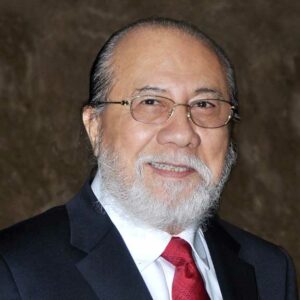CREBA is pressing hard anew for a full-fledged department that will enable the government to address the perennial and ever-increasing housing backlog which the Housing and Urban Development Coordinating Council (HUDCC) has announced to have reached a minimum of 6.57 million units as of 2017.
This untiring call-out to government takes a high pitch as we gear up for the staging of the 27th CREBA national convention at the Thunderbird Resort, La Union from October 17–20 this year.
The backlog could not have risen to this level had CREBA’s long-proposed DHUD bill been enacted into law. Only a full-fledged department can consolidate government efforts to attain our national housing goals with a Housing Secretary clothed with ample powers, functions and corresponding administrative accountabilities implementing a clear and sustainable housing vision.
The DHUD bill has been pending in Congress for more than two decades, even when the Constitution itself underscores the importance of housing and urban development as a basic human need serving as a barometer of the quality of life of people. It is unfortunate that although several Philippine presidents have even certified the creation of a housing department an ‘urgent bill’, it has time and again lagged behind in the legislative mill.
Housing and urban development is not just about the creation of residential structures and communities. It involves planning, finance, regulation, resource allocation, administration, production, and many other activities to ensure a highly beneficial, cost-efficient, growth-oriented and sustainable national housing program.
With only a coordinating council at the moment, the national housing program loses the keen attention and priority it deserves. A study by the Asian Development Bank revealed that Philippine government spending for housing is no more than one percent of its total budget, thus the lowest in Asia. Indeed, housing has ranked among the least of government’s priorities for years.
Pushing for the DHUD forms part of CREBA’s 5-point agenda, which envisions “A Home for Every Filipino” by raising housing production to about 10 million units in 20 years. Based on available figures and CREBA’s estimates, an average of 500,000 units a year must be built within the next 20 years if we are to dramatically address, if not totally wipe out, the huge housing problem.
The success, however, of any government housing program depends on a well-planned and holistic consideration of all factors that should come into play in ensuring effective and sustained program implementation.
The DHUD must be so created as the highest national policy-making body empowered to address housing in its totality by encom-passing 4 major aspects: housing finance, production, regulation and administration – a holistic (not selective) combination of not just a few, but of all these important functions and considerations.
No new funding is necessary as the existing appropriation for HUDCC, including personnel and assets, can be transferred to the DHUD, creating a simply-structured, lean and mean Department.
To power up buyers’ capacity through an incentivized home-lending approach, CREBA’s proposed Omnibus DHUD Bill aims to put up a Centralized Home Financing Program (CHFP) that will run a secondary mortgage market system to make long-term and affordable financing accessible for the millions of qualified low-income earners in need of a home of their own.
The resulting surge in beneficiaries – both formal and informal – can be covered by an initial P350 Billion fund from bond investments by the SSS (P5-billion), GSIS (P25-billion) and the Pag-IBIG Fund (P70-billion or its 70% investible funds), P200-billion from the banking system’s unused lending portfolios for agriculture-agrarian purposes, plus P50-billion provision in the national budget for informal settler families (ISF).
The Department must have powers sufficient to ensure that: (1) the KSA’s, LGU’s and the private sector operate harmoniously where the Housing Secretary possesses adequate administrative and supervisory powers over KSA’s and their governing boards; (2) housing and urban development efforts are accorded high priority; and (3) that funding support allocated to housing by existing laws are allotted and used judiciously.
With the objective of raising housing production to the highest possible level to match the shortage and compounding annual demand, a Department of Housing & Urban Development will provide a tremendous boost to the economy by creating new communities, employment, income opportunities and taxes.
Published in the Manila Bulletin October 2018


